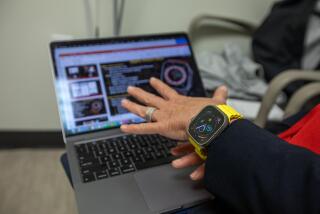Death Machine Maker Seeks Doctors to Assist Suicides
- Share via
DETROIT — A physician who developed suicide machines and used them to assist three ailing women in killing themselves is proposing a nationwide network of doctors who could help people end their lives.
Dr. Jack Kevorkian outlines the plan in an article in February’s American Journal of Forensic Psychiatry, a quarterly publication for psychiatrists who serve as expert witnesses in legal cases.
The 85-page issue is devoted entirely to the article, “A Fail-Safe Model For Justifiable Medically Assisted Suicide (Medicide),” and responses from 13 psychiatrists.
“He’s an unusual thinker, a very avant-garde thinker. But a serious thinker,” said Edward Miller, executive director of the journal, which is based in Laguna Hills, Calif.
Miller said he learned of Kevorkian through reports of the three lethal-injection suicides in Michigan in which the doctor assisted. Medical authorities suspended Kevorkian’s license, and a grand jury is considering whether to charge him in the two most recent cases, in October.
In the article, Kevorkian recommends establishing panels of suicide specialists, whom he would call “obitiatrists,” who would review requests from people wishing to kill themselves. Would-be suicides would need a doctor’s referral to the panels.
“This is a way to do it without abuse,” Kevorkian said Wednesday from his home in suburban Royal Oak, Mich. “It certainly would be abused if every doctor could do it.”
Kevorkian said his proposal for a medically approved, controlled system for the terminally ill should reduce the number of suicides.
Many people who kill themselves do so in a panic, but knowing that medically assisted suicide is available could ease their minds, Kevorkian said. He also proposes making it a felony for a doctor who is not a death specialist to assist in a suicide.
Kevorkian’s article includes guidelines for the makeup of the panels, examples of patient consent forms and fictitious case studies.
More to Read
Sign up for Essential California
The most important California stories and recommendations in your inbox every morning.
You may occasionally receive promotional content from the Los Angeles Times.












